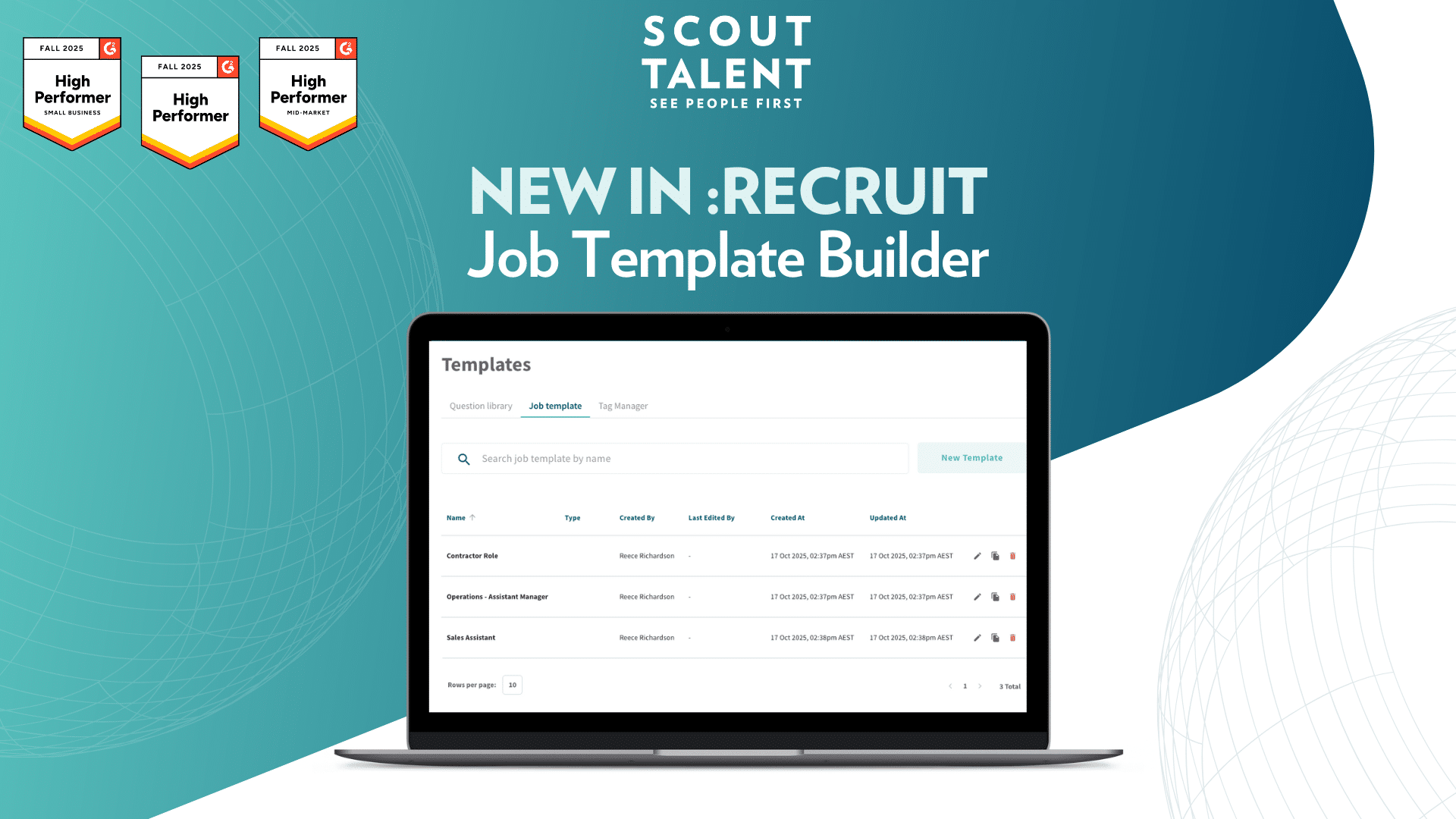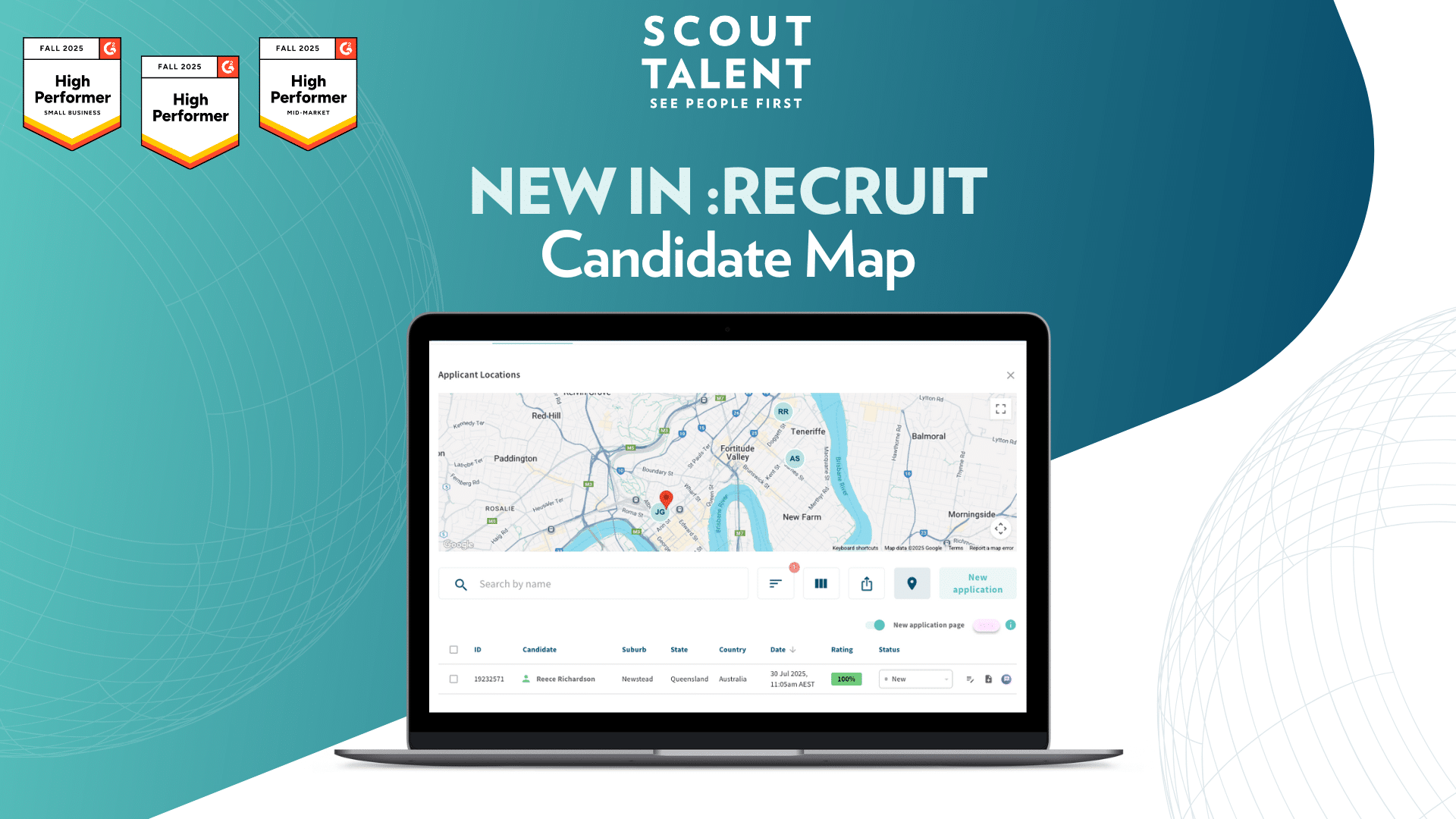If you’ve been following our posts here at Scout Talent, you may have noticed references to a Candidate Experience survey that we carried out internally. Today we’re going to deep dive into the findings of that survey and think a little bit more about what Candidates actually want.
For contextual information, this survey was carried out in the summer of 2019 long before anyone was talking about Coronavirus or recession. We reached out to 10,000 of our most recent candidates, these being people that had passed through our recruitment solutions on behalf of our clients. Geographically the individuals that were targeted were primarily focused in Australia and Canada, though some candidates were based in New Zealand and the US due to some of our clients having roles based there. In terms of industry and seniority, the candidates we surveyed spanned every industry and ranged from entry-level to C-Suite and board members.
The Survey
To keep things relatively concise and to the point, we limited ourselves to 9 questions with as few open text questions as we could manage. Our first 3 questions were segmentation questions which allowed us to better segment the feedback we received so that we could more clearly spot trends. These questions were:
- Were you successful in obtaining the role that you most recently applied for through Scout Talent?
- How did you apply for the role that you most recently applied for through Scout Talent? As in did these candidates apply using a computer or a phone.
- How long did it take for you to apply for the role that you most recently applied for through Scout Talent?
Once we had those questions out of the way, it was then time for getting into the nitty-gritty of finding out exactly what it was that candidates wanted. To source this information we asked our former candidates the following questions:
- Do you like screening questions when applying for a role?
- What was the best part of the recruitment process with Scout Talent?
- What was the worst part of the recruitment process with Scout Talent?
- What do you think would make our recruitment process better?
- How does Scout Talent’s Recruitment process compare with other recruitment processes you have been part of?
- How likely would you be to recommend a family member or friend to apply for a role through Scout Talent on a scale from 0-10?
The results
Overall the results were interesting and there was a lot to unpack and plenty of areas for us to improve. In terms of Candidate feedback some of the high-level findings were:
- 2% of respondents said they were not successful in obtaining the role that they applied for while 28.2% stated they were not aware they had applied for a role through Scout Talent. For an internal recruiting team that 28.2% figure might be damning however for an organization like ours that works on behalf of clients with an aim of improving their Employer Brand, this wasn’t the worst thing to hear. However, in order to ensure the information obtained from this group of respondents was useful the survey we included information to remind them of the role that they applied for.
- 4% of respondents applied for a role using a computer or laptop. 31.6% applied using a mobile or handheld device. This was quite interesting to me, as I think the world is often very focused on mobile users. And while a third of candidates is still a substantial figure and worth catering towards, it does show that when it comes to applying for a role people still prefer to use a computer or laptop.
- 9% took 30 minutes or less to apply for a role through Scout Talent. A key takeaway here is that if your application process, just by nature of what it asks or how it is set up, takes longer than 30 minutes to complete or even looks like it might take longer than 30 minutes to complete, you could be losing out on candidates.
- 3% of applicants enjoy answering screening questions when applying for a role. We are passionate about the value of screening questions towards a recruitment process so it is certainly welcome to learn that the vast majority of applicants enjoy screening questions as well. When we dug into this a little bit deeper we found that candidates enjoy screening questions because it allows them to know exactly what the hiring manager is looking for rather than leaving them to guess with their resume and cover letter.
- 7% of applicants rated the Scout Talent application process as neither better or worse then other recruitment processes they have been a part of. At the time 36.7% of applicants rated our process as better than others, which is good. But overall these statistics weren’t wonderful news for us to hear as we’re always aspiring to improve and change the world of recruitment. However the feedback from these candidates was full of actionable learnings that we’ve since used to transform less favourable parts of our process.
Action items
When it came to the question of what would make our recruitment process better, that was a free text question and it was down to our recruitment specialist, Shane, to read all of those responses and quantify them by sifting through both delightful and concerning feedback in equal measure.
The most statistically substantial feedback was 38% of respondents who had issues and concerns in communication and the delivery of feedback. The biggest drivers for those candidates were found in overall communication around what our recruitment process entails and not receiving feedback.
This is a pretty standard pain point for candidates throughout the recruitment industry, and unfortunately for us, it was the one part of the process that originally required the most client input. Who did they want to hire, who did they want to pass on this time, what did their overall timelines look like? Of course, placing the blame on someone else isn’t our style here at Scout Talent, so we dug a little deeper into the feedback.
Of those respondents that were looking for better communication, there was a trend that candidates would like more information around timelines of the overall process, where they are in the process, and if the role has already been filled. Of those respondents that were looking for feedback, there was a trend that candidates never hear anything ever again after submitting an application and are left to assume they’re unsuccessful.
This group of respondents are crying out to be informed as soon as they are made unsuccessful and why they’re unsuccessful.
Fixing the problem
We approached this problem by taking a candidate view at every touchpoint of our recruitment journey and trying to create moments of candidate care.
One of the biggest changes we made, that you could probably all do right now, is setting expectations with your candidates as soon as they apply. Once your candidates submit an application they should receive an email outlining when they should next expect to hear from you and what to do if they have questions.
There’s a lot to learn from this candidate feedback and while none of it is overly shocking it does cement what a lot of us have known for some time, candidates are frustrated with how we approach recruitment.
This means we all have to strive for better. No longer can we ignore the basic things our candidates are asking for because sooner or later someone is going to create a process that appeals to candidates in ways none of us ever have before, and then they’ll have their pick of top talent.
Here at Scout Talent, we’ve worked hard to implement the feedback we’ve received into both our own Employer Brand and the Employer Branding of our respective clients. This year, we’re going to survey our candidates once again to see how we’ve improved and address any concerns that our candidates might have.
It’s not easy to create a recruitment process that is candidate friendly. It takes continuous work and measuring. But nothing worth doing is ever easy.
If you enjoyed this content and would like to receive our monthly recruitment update emails, simply fill out the form below.




